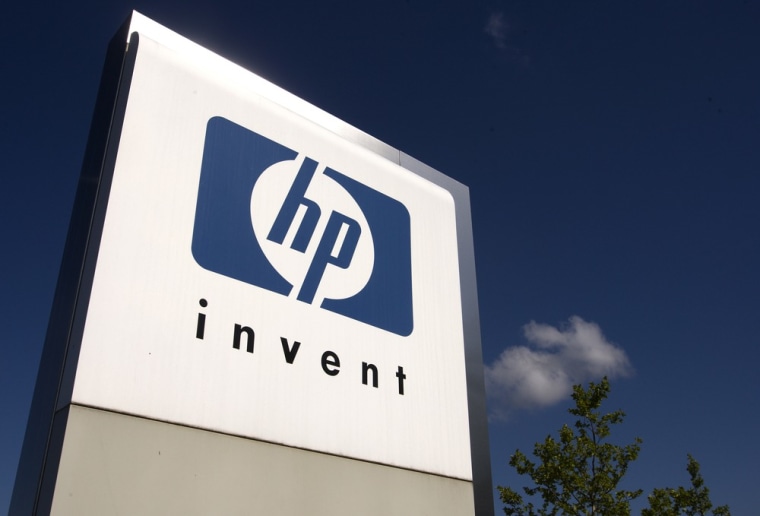If Google can turn itself into a potential cell phone manufacturer, it seems anything’s possible in the technology business. But investors and analysts alike are scratching their heads over Hewlett-Packard’s recent strategic move.
HP essentially waved the white flag and ceded the rapidly evolving personal computing business to Apple when it announced Thursday it might jettison its consumer hardware division and scrap its poorly-selling mobile product line in order to focus on business services.
Investors gave the company's plan a big, fat thumbs-down, sending the tech giant’s stock price down more than 20 percent Friday. But analysts are divided over the strategic move, which initially drew comparisons to IBM’s decision to dump its consumer hardware business in 2005.
Since then Big Blue has made huge strides focusing on enterprise data, services and cloud computing. So the services business is a sweet spot right now, but other analysts see HP’s move as just the latest gyration in a series of confusing, ill-fated moves for the venerable tech company.
Twelve years after Carly Fiorina took the helm at HP — and six years after her rancorous ouster — there's still plenty of vitriol and finger-pointing aimed at the former CEO’s 2002 purchase of competitor Compaq, which came despite shareholder objections and analyst skepticism.
Management scandals and the departure of CEO Mark Hurd last year nearly overshadowed the company’s $1.2 billion acquisition of Palm last year. Now, the reversal of its significant hardware investments looks like capitulation. Although its WebOS garnered critical praise, the devices running it had no market traction, and HP faces a future of playing catch-up not only to Apple but to a newly-aggressive Google.
HP also might be overpaying for British software company Autonomy, another big move that was announced Thursday. The announced acquisition fits with its operational makeover, but the hefty, $10 billion price leaves HP without a lot of cash on hand for future maneuvering, Peter Misek, an equity analyst at Jefferies, pointed out in a research note Friday.
Analysts who take a longer view say HP’s change of direction could work out. Leo Apotheker, the company’s CEO for less than a year, has a background in the software-as-a-service business, and HP already has a footprint in this field.
“The enterprise side has a lot of opportunity,” said Gartner’s principal analyst Mikako Kitagawa. “[HP has] a very good, well-recognized brand in the market.”
Jefferies’ Misek is also bullish over the long term, pointing out that the Autonomy acquisition gives HP a new market in which to cross-sell its services.
It’s too early to tell if the hardware side of the business will be taken private or absorbed by a competitor, but most analysts think HP is going to keep its WebOS platform and license it to other phone and tablet manufacturers who are leery of Google’s move into the hardware space and so are seeking an alternative to Google’s Android operating system for mobile devices.
If Android stumbles, other operating systems are available, and HP’s WebOS is seen as a contender in that market, notes Roger L. Kay, president of Endpoint Technologies Associates.
It’s also conceivable that HP could sell off WebOS if a deep-pocketed bidder stepped up, given the premium that mobile operating systems are commanding these days.
“Given the opportunity for higher margins in software, compared to the capital intensive and low margins in PC manufacturing, this does appear to be a solid strategic move,” said Ted Dangson, a director at IDC, via e-mail.
So why isn’t HP’s strategy shift getting any love from investors?
“The difficulty is when you institute a change, if you can’t articulate the benefits of the difference, people just see you as weird,” Rob Enderle, principal analyst for the Enderle Group, noted. “HP is executing a strategy, but they’re not really communicating what the strategy is.”
Enderle points out that a perennial problem with leaks of corporate information has handicapped HP from being able to control their market message.
So although the company left the tablet marketplace to Apple, it would do well to take a page from Steve Jobs’ playbook of iron-fisted control when it comes to disseminating information.
